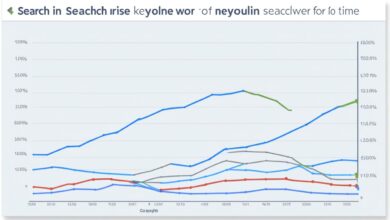Title: Investing in Cars: A Comprehensive Guide to Understanding Value, Risks, and Returns

Introduction:
Investing in cars is a venture that appeals to enthusiasts and investors alike, offering the potential for both passion and profit. Whether you’re interested in classic cars, luxury vehicles, or collectible models, understanding the dynamics of the automotive market is essential for making informed investment decisions. In this comprehensive guide, we’ll explore the world of investing in cars, covering key factors to consider, risks to be aware of, and strategies for maximizing returns in this unique asset class.
Understanding Car Investment:
Investing in cars involves purchasing vehicles with the expectation of generating returns over time through appreciation in value, rental income, or capital gains. Cars can be considered both tangible assets and collectibles, with value influenced by factors such as brand reputation, rarity, condition, historical significance, and market demand. While some investors may view cars primarily as a means of transportation, others see them as assets that can appreciate in value over time, particularly for certain makes and models with strong collector appeal.
Key Factors to Consider:
- Brand and Model: The brand and model of a car play a significant role in determining its investment potential. Classic cars from prestigious marques such as Ferrari, Porsche, and Lamborghini often command higher prices and appreciate in value more rapidly than mass-produced vehicles. Similarly, limited-edition models, iconic designs, and vehicles with historical significance tend to attract collectors and command premium prices in the market.
- Condition and Maintenance: The condition and maintenance history of a car are critical factors that impact its value and investment potential. Well-maintained vehicles with low mileage, original parts, and documented service records are generally more desirable to collectors and investors. Regular maintenance, repairs, and preservation efforts can help maintain or enhance the value of a car over time, ensuring that it remains attractive to potential buyers or collectors.
- Market Demand and Trends: Understanding market demand and trends is essential for identifying investment opportunities and making informed decisions. Researching market dynamics, auction results, price trends, and collector preferences can provide valuable insights into which cars are likely to appreciate in value over time and which may experience depreciation. Keeping abreast of industry news, events, and developments can help investors stay ahead of the curve and capitalize on emerging trends in the automotive market.
- Storage and Preservation: Proper storage and preservation are crucial for maintaining the value and condition of investment cars. Storing vehicles in a climate-controlled environment, protecting them from the elements, and following best practices for maintenance and preservation can help prevent deterioration and maintain the originality of the car’s components, finishes, and documentation. Investing in storage facilities, security measures, and insurance coverage can provide added protection and peace of mind for car investors.
- Liquidity and Exit Strategy: Liquidity is an important consideration for car investors, as vehicles can be relatively illiquid assets compared to other investment vehicles such as stocks or bonds. Selling a car may require time, effort, and marketing resources to find the right buyer at the desired price. Having a clear exit strategy, such as auctioning the car, selling it through a dealer, or consigning it to a specialty marketplace, can help investors realize their investment objectives and maximize returns when the time comes to sell.
Risks Associated with Car Investment:
- Market Volatility: The automotive market can be subject to volatility, with fluctuations in demand, economic conditions, and consumer preferences impacting the value of cars. Changes in market conditions, such as shifts in fuel prices, regulatory requirements, or technological advancements, can influence the desirability and resale value of certain types of vehicles, potentially affecting investment returns.
- Depreciation: Like any asset, cars are subject to depreciation, with their value typically decreasing over time due to factors such as wear and tear, technological obsolescence, and changing market trends. While some cars may appreciate in value over the long term, others may experience significant depreciation, particularly if they lack collector appeal or historical significance.
- Maintenance and Storage Costs: Owning and maintaining investment cars can entail significant costs for storage, insurance, maintenance, repairs, and restoration. Vintage or collectible cars may require specialized care and attention to preserve their originality and value, including regular inspections, repairs, and restoration work. Investors should budget accordingly for these ongoing expenses to ensure that they do not erode investment returns over time.
- Market Illiquidity: Cars can be relatively illiquid assets, meaning that they may be challenging to sell quickly or at a fair price, especially during periods of economic uncertainty or market volatility. Finding the right buyer, negotiating a sale, and completing the transaction can take time and effort, potentially delaying the realization of investment returns and tying up capital in the meantime.
- Authentication and Fraud: The collectible car market is not immune to fraud, forgery, and misrepresentation, with counterfeit parts, altered documentation, and misrepresented vehicle histories posing risks for unwary investors. Conducting thorough due diligence, verifying the authenticity and provenance of a car, and obtaining professional inspections and appraisals can help mitigate the risk of fraud and ensure that investors are making informed decisions.

Strategies for Successful Car Investment:
- Research and Due Diligence: Thorough research and due diligence are essential for identifying investment opportunities, evaluating market conditions, and assessing the potential risks and rewards of car investment. Researching market trends, historical sales data, and collector preferences can provide valuable insights into which cars are likely to appreciate in value and which may be more speculative or volatile investments.
- Diversification: Diversification is a key strategy for managing risk and optimizing returns in car investment. Rather than concentrating all investments in a single car or model, investors should consider diversifying their portfolio across different brands, eras, and categories of cars, including classic cars, sports cars, luxury vehicles, and collectible models. Diversification can help mitigate the impact of individual car performance and market volatility on the overall investment portfolio.
- Long-Term Perspective: Car investment is often a long-term endeavor that requires patience, discipline, and a willingness to ride out market fluctuations and economic cycles. Investors should adopt a long-term perspective and focus on the underlying value and quality of the cars in their portfolio, rather than attempting to time the market or chase short-term gains. By taking a patient and disciplined approach, investors can position themselves to capitalize on the potential appreciation of their investment cars over time.
- Professional Advice and Expertise: Seeking professional advice and expertise can provide valuable guidance and insights for car investors, particularly those who are new to the market or lack specialized knowledge and experience. Consulting with automotive experts, collectors, appraisers, and investment advisors can help investors navigate the complexities of the car market, identify promising investment opportunities, and avoid common pitfalls and mistakes.
- Active Management and Monitoring: Active management and monitoring are essential for successful car investment, involving regular assessment of market conditions, portfolio performance, and individual car values. Investors should stay informed about industry trends, attend car auctions and events, and network with other collectors and enthusiasts to stay abreast of developments in the market. By actively managing their investment portfolio and staying engaged with the car community, investors can identify opportunities, make informed decisions, and adapt their investment strategy to changing market conditions.
Opportunities in Car Investment:
- Classic Cars: Classic cars represent a popular segment of the investment market, with certain models appreciating in value significantly over time. Vintage cars from iconic brands such as Ferrari, Porsche, and Jaguar often command high prices at auction and attract collectors seeking rare and historically significant vehicles.
- Luxury Vehicles: Luxury vehicles, particularly limited-production models from prestigious marques, can offer attractive investment opportunities for discerning collectors and investors. Exclusive models from brands such as Rolls-Royce, Bentley, and Aston Martin may appreciate in value due to their craftsmanship, performance, and exclusivity.
- Collector Cars: Collector cars encompass a wide range of vehicles, including sports cars, muscle cars, exotics, and specialty models, that appeal to enthusiasts and collectors. Rare or sought-after models with unique features, low production numbers, or significant provenance can command premium prices in the collector car market, offering investment potential for savvy investors.
- Classic Motorcycles: Classic motorcycles represent a niche segment of the investment market, with vintage bikes from renowned manufacturers such as Harley-Davidson, Indian, and Ducati attracting collectors and enthusiasts. Rare or iconic models with historical significance or racing pedigree can appreciate in value over time, offering investment opportunities for motorcycle enthusiasts and investors alike.
- Modern Collectibles: Modern collectible cars, including limited-edition models, hypercars, and supercars, represent a growing segment of the investment market, with demand driven by performance, exclusivity, and brand cachet. High-performance models from brands such as Bugatti, McLaren, and Pagani may appreciate in value due to their rarity, technological innovation, and collector appeal.
Conclusion:
Investing in cars offers the potential for both passion and profit, combining the thrill of ownership with the opportunity to generate returns over time. By understanding the dynamics of the automotive market, conducting thorough research and due diligence, and adopting a disciplined investment strategy, investors can capitalize on opportunities to build wealth and achieve their financial goals through car investment. Whether you’re a seasoned collector or a novice investor, the key to successful car investment lies in education, patience, and a long-term perspective. By following these principles and strategies, investors can navigate the world of car investment with confidence and maximize their chances of success in this exciting and rewarding asset class.




